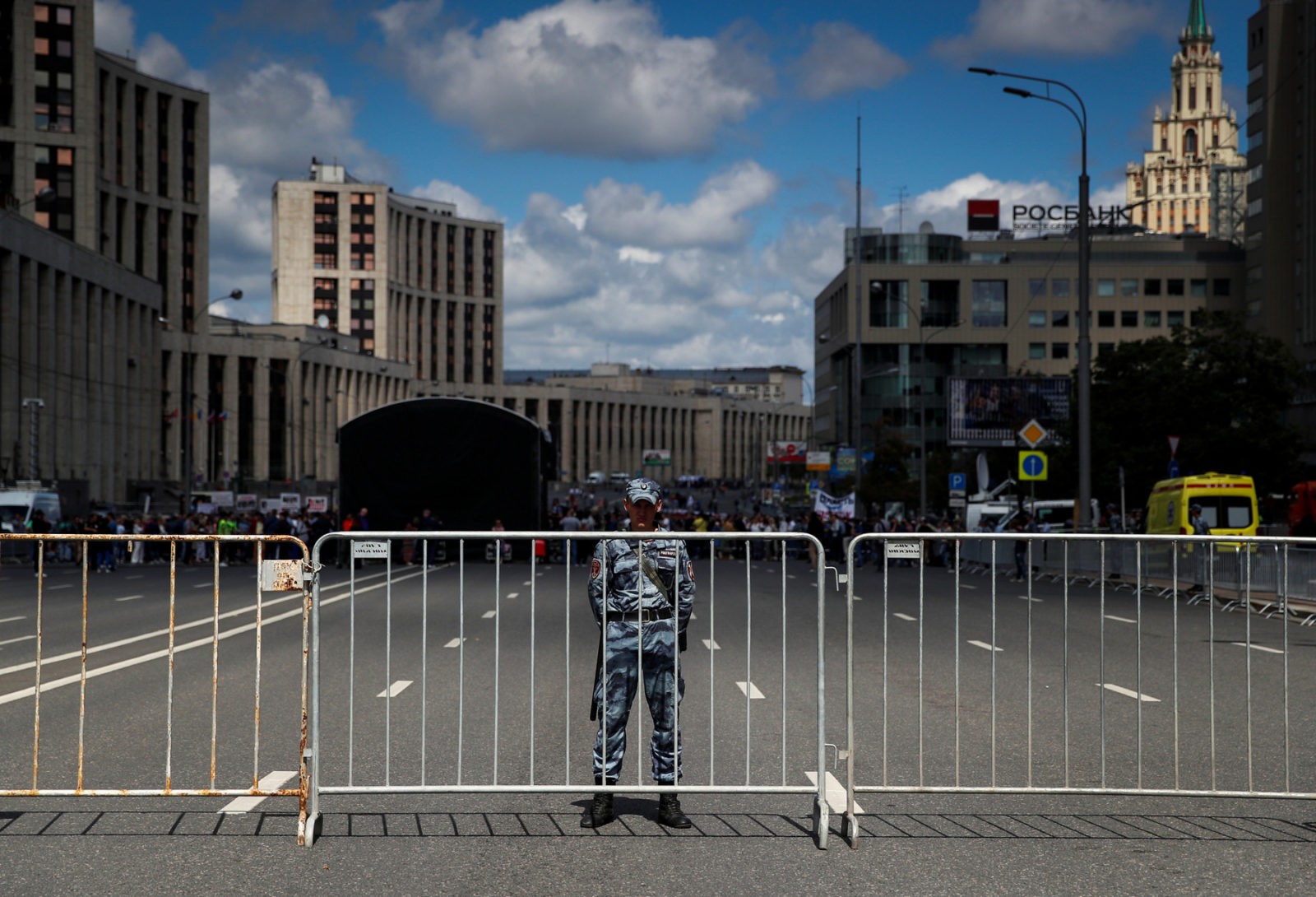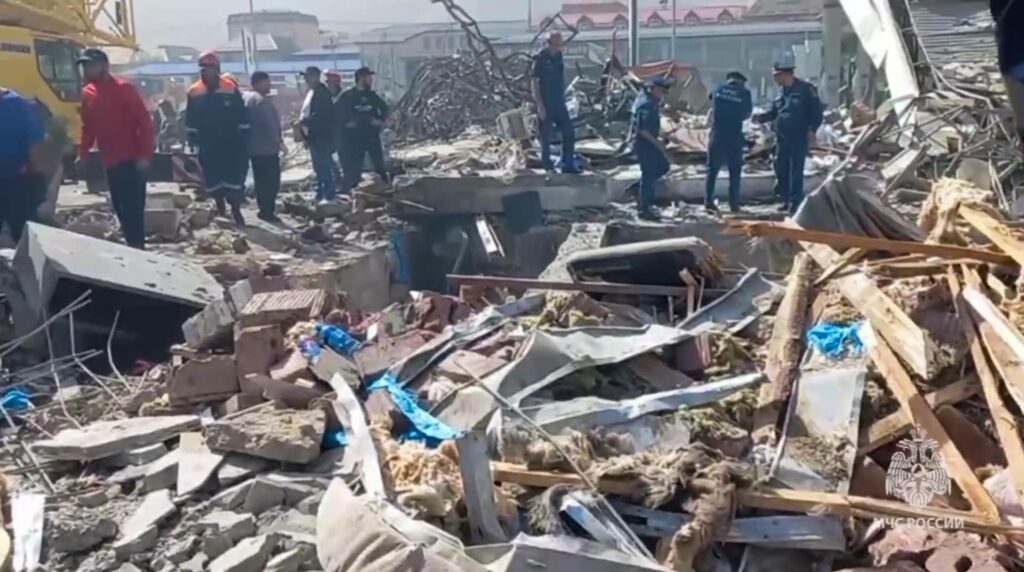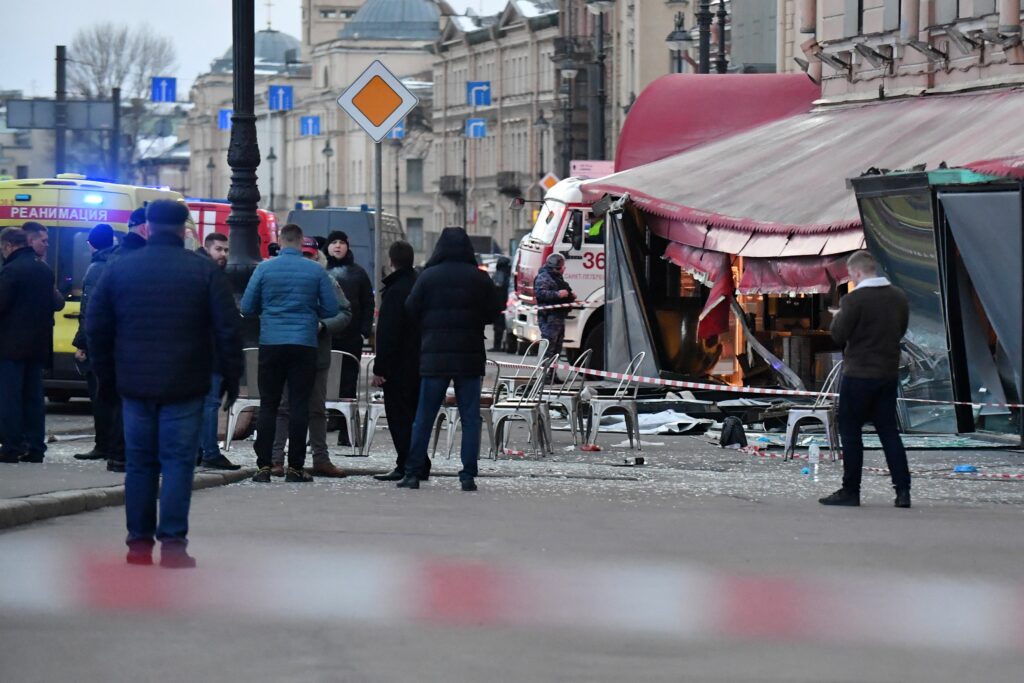In April 2019, United Russia lost all municipal elections. In the same month, the FOM public opinion research agency released a poll where 43% of respondents did not trust the ruling party. The survey claimed 42% view the activities of Vladimir Putin’s main party as “negative”. Meanwhile, data from the Levada Center show that only 41% would vote for the incumbent president if there were elections next Sunday. In the same survey, 19% would not vote in the elections at all. The findings show support for the government has reached low ebb in post-Crimean Russia.
Why is that? The issues of military security bolstered support for the Kremlin back in 2014. But these have become less of a concern to ordinary Russians. This is in spite of round-the-clock propaganda. In spite of effective political machinery. And in spite of the international situation remaining tense. Instead, the emphasis has been shifting towards the socio-economic well-being of citizens. It is proving harder for the Kremlin to ensure human security than geopolitical security.
A big man in a small country
For a long time, national security meant the state and its military defence. The end of the Cold War, though, brought a new concept of security — i.e. human security. “Human security” emphasises that the security for the majority of citizens is linked to the consequences of poverty. That could be crime, corruption, domestic violence. Human security is also linked to the absence of opportunities. For example, alcohol and drug abuse, subjective sense of hopelessness. Those matter more from this point of view than nuclear warheads or columns of tanks. For instance, according to official data, 47,000 servicemen from the federal troops and militants died in Chechnya in 1994–2009. The number of Russians who were killed in the same period is much higher. Even if we take the relatively prosperous period of 16 years, from 2002 to 2018, it turns out that the number of people killed all over Russia was 373,259. This is nearly eight times as much as the death toll in Chechnya in 1994–2009. According to 1997 estimates, the damage to Russia’s economy caused by the First Chechen War amounted to USD 5.5 billion (or USD 7.3 billion by 2008 prices). But in 2008 alone, Russia’s economic losses caused by alcohol, tobacco and drug abuse (costs of treatment, law enforcement, education, consequences of fires, traffic accidents and support to orphans) totalled USD 22 billion by modest estimates.
The UN distinguishes seven components of human security. One, economic security. This could mean unemployment, inequality, inflation, social support and homelessness. Then, economic and physical access to food. Or health security through access to health care. Environmental security — a lack of pollution or contamination. Personal security: is there violence or discrimination? Community security: are there ethnic tensions or violent conflict? Finally, political security. This is meaesured in terms of repression and human rights violations. The 2004 UN Human Development Report noted that for the majority of the population, war is not between nations. Rathere, it is within the country itself: the war against disease; hunger; unemployment, crime; drugs; social disparities; repressions and environmental threats. As for Russia, it has been quite successful in waging wars externally. But the country has achieved much less success in the internal war for the human security of its citizens.
| State security vs. Human security in today’s Russia | |
| State security | Human security |
| State-oriented:
This model implies protecting Russia as a political entity. |
Human-centric:
Aimed at protecting people / citizens. |
| Military and political threats to the state (as seen by the current authorities):
NATO, USA, internal “traitors”, religious extremism, separatism. |
Multi-layered threats:
High levels of inequality, weak social support, environmental problems, high levels of violence, ethnic tensions, repressions against the opposition. |
| Main agents:
The priority of the UN Security Council as a platform for conflict resolution, a relatively strong army, nuclear weapons. |
Main agents:
Underdeveloped network of NGOs, Moscow as the decision-making centre due to strong fiscal and political centralisation, limited international presence. |
| Strategies to achieve it:
Geopolitical planning, military construction, maintaining the internal security apparatus, giving priority to macroeconomic projects, rapprochement with China, Eurasian Union. |
Strategies to achieve it:
Centralised planning, nation-wide projects, NGOs financed through government grants.
|
People cannot be fed on military success
In the first article of our “For Your Security” series, I noted that Moscow managed to turn the Ukrainian Maidan into an existential threat, allegedly coming from the West, as well as to present the internal opposition as traitors and “agents of influence”. As a result, public attention was focused on the country’s security: confrontation in foreign policy and maintaining stability internally. However, this legitimising design can no longer support the authorities.
Neither the society nor the elites see foreign policy grandeur and military success as great achievements. The Kremlin was only able to bring state security back up to the public perception of Russia as a superpower. Except for the second half of Medvedev’s presidency, Russian elites always believed the country’s national interests lie outside its borders. The Crimean events only reaffirmed expectations of a militarised Russian international influence. In turn, society has always declared that the Russian armed forces were able to protect the country from external invasion. Meanwhile, the Russians began to support the conscription-based military service only in 2015, when the desired image of a powerful army s elicited the people’s physical support. So, Russia became “normal” in the eyes of its society and the elites, i.e. a superpower with natural abilities to project its national interests abroad, also through military force. However, the Russian “normality of the state” thus created should not restrain social and economic development, which should also be successful.
To ensure human security, the Kremlin needs better governance. This is much harder to do than to buy new weapons and reform the army, as was the case during the prosperous period of Medvedev’s presidency. In the series of articles “Russia’s Personnel”, I already noted that the most capable candidates are not yet incorporated into the political system. This is after all still constrained by neo-patrimonial practices. Russian hybrid institutions have influential informal (patrimonial) relations between members of the elite. The same goes for formal laws and regulations for ordinary people and processes. Moreover, Vladimir Putin’s declining ratings can only strengthen the informal approach. It keeps the formal rules subordinated.
The question of the year 2024 looms large amid declining popular support and the shrinking of the economic “pie.” It is only rational that the current elites begin to rethink their future. The president, though, is driven to maintain political stability. Therefore, formal state-level institutions become “captured” by private individuals. The priority of the presidential rating among performance indicators of regional authorities; a legal ban on criticising the authorities; the proposal to classify the expenses of Rosgvardia – all these are attempts to fossilise the advantages enjoyed by the elites. At least until a change in power or a complete collapse of the state. Of course, this system undermines the potential for improving public governance. Consequently, also for improving the human security of Russians.
The Example of Ukraine: a Victory in Kyiv as a Threat to Moscow
In March 2019, the General Staff of the Armed Forces of the Russian Federation said that the United States had developed a “Trojan Horse” strategy. It was based on the “active use of the protesting potential of the fifth column in order to destabilise the situation, with simultaneous strikes using high-precision weapons”. The strategy, of course, turned out to be a fake one, but it should have been invented anyway. The General Staff’s commentary shows the Kremlin’s heightened concern about the internal political situation and the unexpected non-military threat from Kyiv.
The Ukrainian presidential election was an example of how, even during wartime, citizens can revoke their mandate for the elites who are unable to improve their socio-economic situation. Alexander Baunov predicted the impending defeat of Petro Poroshenko. Ukraine’s fair and free elections offered an opportunity to speak out to the “provincial folks”, the very same that Surkov short-sightedly called inaccessible “for sociological surveys, agitation, threats and other ways of direct exploration and influence”. It turned out that the “provincial folks” were quite able to express their preferences in free and fair elections. They could indeed change the head of state. Even if the country had been engaged in protracted hostilities, or had lost 7% of its territory and 13% of the population. The Ukrainian elections have demonstrated to other post-Soviet countries that these traditional “provincial politicians” are not available “for sociological surveys, agitation, threats and other ways of direct exploration and influence”, and that the people are quite normal and able to show distrust in political leaders. However, as the most recent Levada Center study shows, such views are not yet widespread in Russia: Russians believe that the change of power will be a simulacra, making no difference to the country. Thus, the progress of Ukraine’s new administration in improving the country will be monitored by the Kremlin.
Quite symbolically, Zelensky’s victory proved the similarity between the current internal socio-economic priorities of Ukraine and Russia. Both countries need to find solutions to ensure better human security for their citizens. This is especially surprising for Ukraine, given the war in Donbas. If the new Ukrainian administration succeeds in fulfilling the promised plans, but the Kremlin does not, the path to success in the neighbouring country could become a symbol for Russians. Much like the imaginary “West” was in the late 1980s.
However, it is impossible to achieve long-term improvement in Russia without reforming its domestic institutions. Any changes in this sphere are restrained by domestic and international factors. Inside the country, the Kremlin has become entangled in a network of private political and economic interests. These interests could be curbed by holding free elections, which do not exist in Russia. Moscow’s foreign policy is constrained by sanctions. Though the Kremlin has been trying to undermine their unity, this has been ineffective. It has been complicated by hardline positions on Crimea and Donbas, seen as a sine qua non for state security.
Thus, security issues are a vital factor in Russia’s foreign and domestic policy. Russia’s success in its citizens’ view includes military and foreign policy achievements. And yet, the citizens’ belief in military power over the West does not ease the growing socio-economic insecurity. While military security can be through prompt interventions using military force and diplomacy, any reforms of social welfare, the health care system or keeping the retirement age unchanged would need economic growth and changes in the political system. For this, a new state is needed but the Kremlin is not interested in creating one.
The fourth part of the series ‘Safety first’: the changing role of veterans’ organisations in Russia









